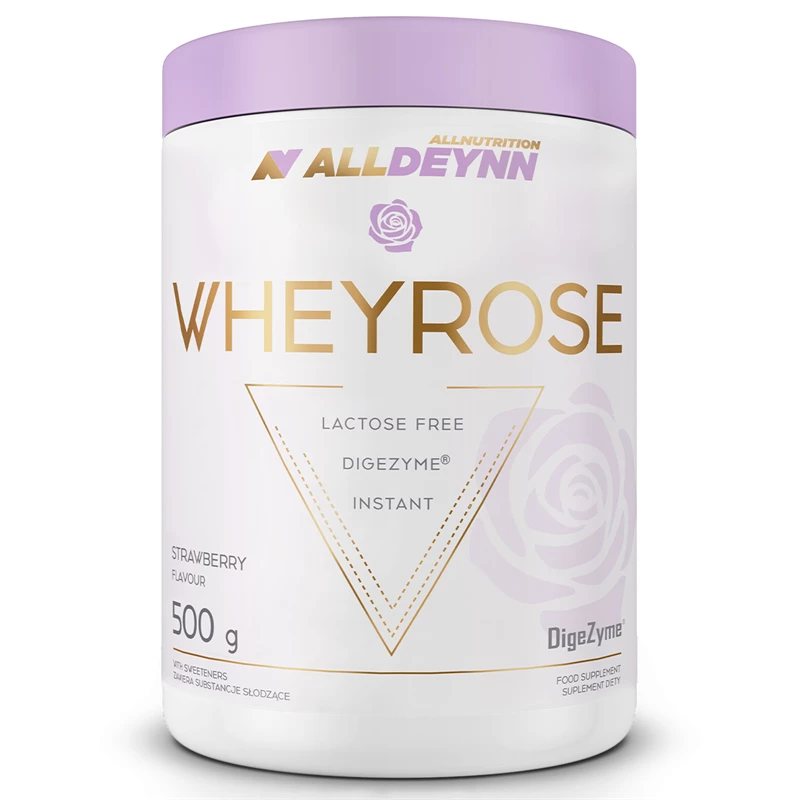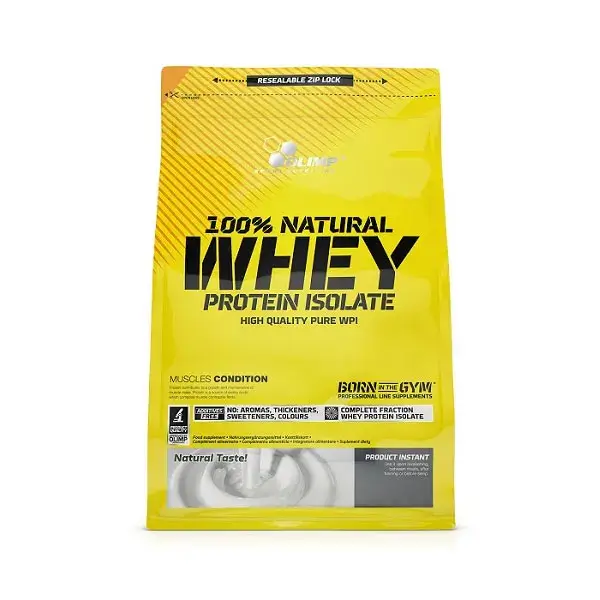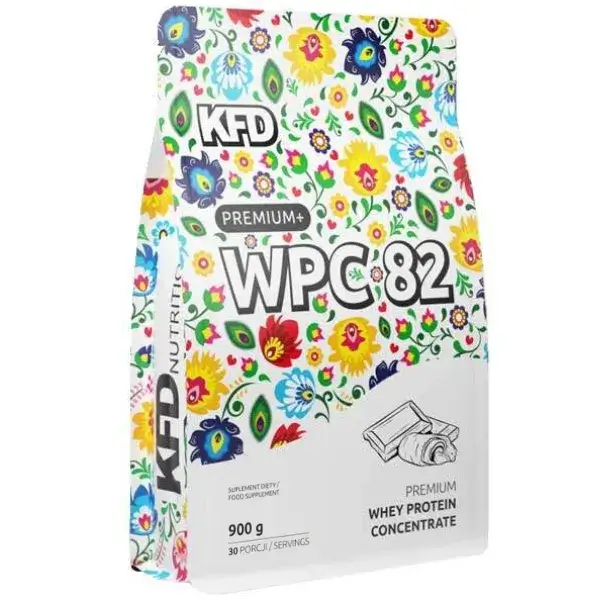Glutamine (L-glutamine) - what it is, effects, side effects
Glutamine is the most abundant amino acid in the body and is particularly important for athletes.


Learn more about our editorial process
.

Learn more about our editorial process
.

Learn more about our editorial process
.

Learn more about our editorial process
.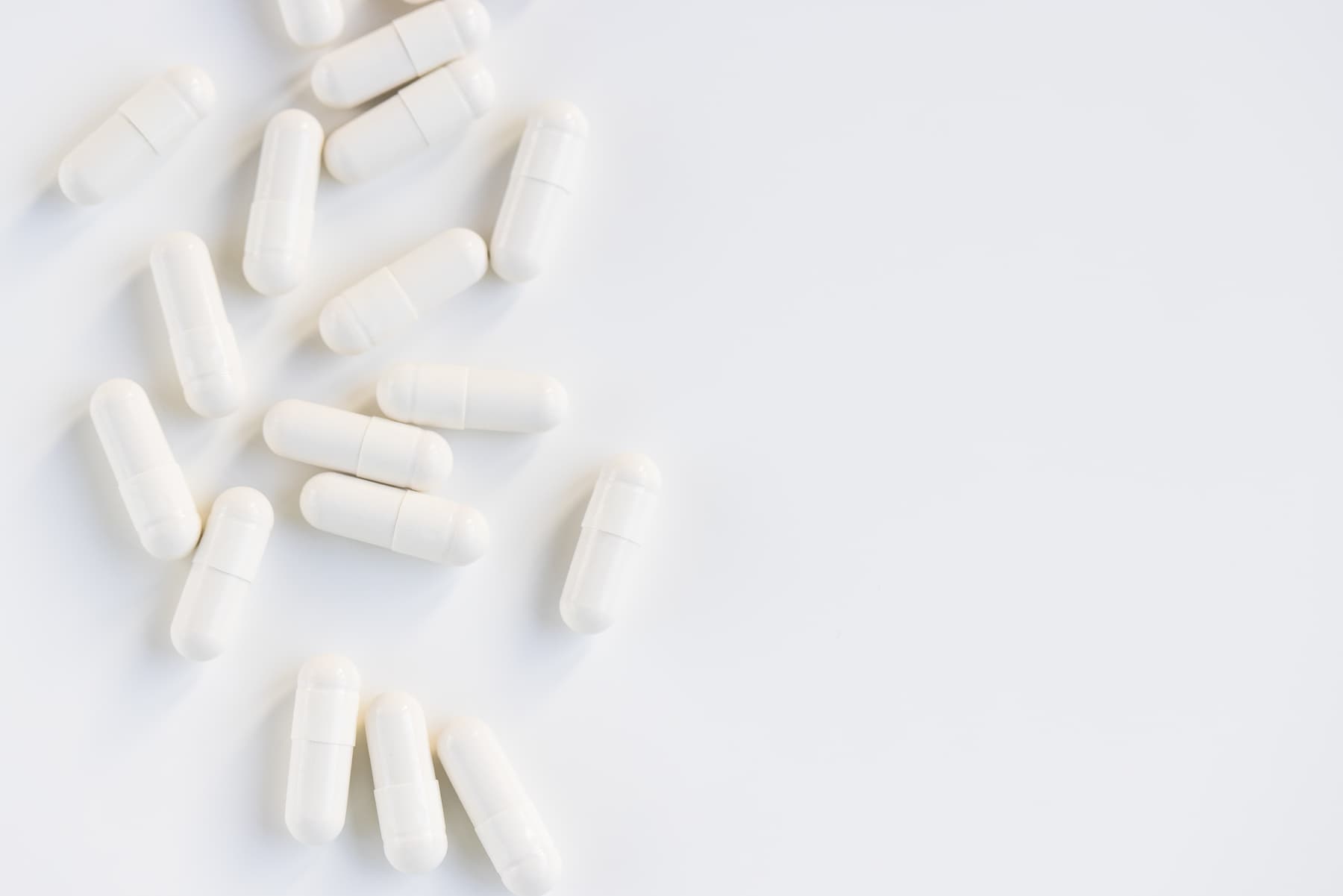
Why you can trust us
Articles on Natu.Care are written based on scientific research, data from government websites and other reliable sources. The texts are written in cooperation with doctors, nutritionists and other health and beauty experts. Articles are reviewed before publication and during significant updates.
.Learn more about our editorial process
.Information about advertisements
Content on Natu.Care may contain links to products from the sale of which we may receive a commission. When creating content, we adhere to high editorial standards and take care to be objective about the products discussed. The presence of affiliate links is not dictated by our partners, and we select the products we review ourselves completely independently.
.Learn more about our terms and Conditions
.If something is most important then I must supplement it. This approach can often be accurate, but it's a little different with glutamine. Despite the fact that it is the essential amino acid (conditionally) that is most abundant in the human body, not everyone needs to supplement it. Why?"
With clinical nutritionist Jakub Pągowski, we will answer these and other questions.
From this article you will learn:
.- What is glutamine and how it differs from L-glutamine. .
- What properties glutamine has and where to find it. .
- How to supplement and dose glutamine safely. .
- Are there any contraindications or side effects. .
See also:
.- Proline
- Glycine
- Lysine
- The best collagen on the market
- Best collagen for nails
- Best collagen for face
- Best collagen for wrinkles
- Best collagen for skin
- Best collagen for joints
- Best collagen for hair
- Best collagen for cellulite
- Best collagen for acne
- Best collagen for stretch marks
- Best collagen for scars
- Best collagen for bones
- Best collagen for drinking and collagen for drinking (effects)
What is glutamine?
.Glutamine is a amino acid that is extremely important for the health and proper functioning of the body. It plays a key role in the functioning of the immune system, assists in the regeneration of muscle cells after intense training, and is essential for the synthesis of proteins and production of energyand.
Furthermore, glutamine is the most abundant amino acid in the human body. Although it is a so-called essential amino acid, it does not always need to be supplied with food, as the body can synthesise it on its ownand.
.Worth knowing
.An adult weighing about 70 kg has about 70-80 g of glutamine distributed throughout the body. That's as much as a medium-sized tangerineand.
In certain situations, such as severe inflammation, major surgery or intense endurance training, the need for glutamine can definitely increase, hence it is often included in the diet as a supplement .
.Glutamine is a conditionally essential amino acid, meaning it is worth taking care of its supply during more severe periods - mainly after surgery or injury..
 .
.
Kuba Pągowski clinical dietitian
Glutamine vs L-glutamine - what are the differences?
.Glutamine is an amino acid that exists in two forms known as enantiomers - L-glutamine and D-glutamine. Although the two forms are structurally similar, they differ in their spatial arrangement, which affects their biological activity.
L-glutamine is the biologically active form of glutamine that occurs naturally in the human body. It is the one that is essential for many biological functions, such as protein synthesis, blood sugar regulation and immune system support. It is also the form that you will typically find in dietary supplementsand.
D-glutamine is much less biologically active and does not have as many functions in the human body as L-glutamine. Therefore, its role in the body is generally less studied compared to L-glutamineand.
Glutamine - properties and effects
.Glutamine - and particularly its biologically active form L-glutamine - is recognised as a key amino acid for many functions in the body. It influences the health of the digestive system, muscle growth and regeneration, as well as the proper functioning of the immune system.
How exactly does glutamine work?
.Promotes the function of the digestive system
.Glutamine is important for maintaining the health of the digestive system. First and foremost, it is the main "fuel" for intestinal epithelial cells, which means it is essential for their proper functioning and regeneration.
Glutamine is the main "fuel" for intestinal epithelial cells.
Thanks to this, glutamine helps maintain the integrity and health of the intestinal barrier, which is the first line of defence against harmful pathogens and toxins from foodand.
.Also, glutamine can help treat and prevent some gastrointestinal problems. For example, it is often used as an adjunctive therapy to treat irritable bowel syndrome (IBS), which is a chronic inflammatory condition. Supporting the treatment of people with this condition is possible thanks to the anti-inflammatory and regenerative properties of glutamineand.
Finally, at the cellular level, glutamine influences energy and signalling processes that are essential for maintaining healthy, well-functioning intestinal cells .
.Promotes exercise performance
.Glutamine is one of the amino acids that the body uses to synthesise protein - a process essential for muscle cell growth and repair.
.On the one hand, it can reduce feelings of fatigue during intense training by neutralising lactic acid, which is produced in the muscles during exerciseand.
.On the other hand, it has been studied in the context of protecting muscles from damage and speeding up recovery after training .
.This is why consuming adequate amounts of glutamine is particularly important for people who engage in intense exercise, such as athletes and bodybuilders, who want to increase endurance and muscle mass .
A 2015 study of 16 healthy participants evaluated the effects of L-glutamine supplementation on quadriceps thigh muscle strength and soreness experienced after workouts. The observations suggest that daily L-glutamine supplementation can accelerate muscle strength recovery. Furthermore, L-glutamine resulted in lower pain scores at 24, 48 and 72 hours after exerciseand.
Note
.There is also no shortage of studies that suggest glutamine has no effect on exercise performance or muscle growth. Its effect in this direction is still in question. Therefore, more research is needed to confirm or deny its effectiveness for physically active people.
Maintains nitrogen balance
.Nitrogen balance is a state in which the amount of nitrogen supplied to the body (mainly through protein in the diet) is equal to the amount of nitrogen excreted by the body (mainly through urine and sweat). Ideally, the body maintains a neutral nitrogen balance, meaning that it uses as much nitrogen as it supplies, without accumulating excess or experiencing a deficitand.
Glutamine has important functions in maintaining this balance, as it is the body's essential nitrogen carrier. Its molecule contains two nitrogen atoms - more than any other amino acid. This allows glutamine to efficiently transport nitrogen between different tissues, as well as helping the body deal with excess nitrogenand.
Maintaining the correct nitrogen balance is particularly important for physically active people. It influences the anabolic (building) and catabolic (breakdown) processes in the body, which are important for recovery and muscle building.
Therefore, insufficient amounts of glutamine can lead to a state in which muscle breakdown exceeds building, which will lead to loss of muscle massand.
Promotes immune system function
.Glutamine is an energy source for lymphocytes and macrophages - immune system cells responsible for fighting pathogens. Under stressful conditions, such as illness, the demand for glutamine increases significantly, helping immune cells to work more efficientlyand.
Additionally, glutamine helps to maintain the integrity of the intestinal barrier, which is important in protecting against bacteria and pathogens. This helps prevent systemic infections that can negatively impact overall healthand.
Produces glutathione
.Glutathione, sometimes referred to as the "master antioxidant", is one of the most important antioxidants in the body. It works at the cellular level to neutralise harmful free radicals and other molecules that cause oxidative stress, which can lead to cell and tissue damage and accelerate ageingand.
Glutathione is a tripeptide, meaning it is made up of three amino acids: cysteine, glutamic acid and glycine. Glutamine, being one of these amino acids, is extremely important for the synthesis of glutathioneand.
Providing the body with adequate amounts of glutamine can help ensure normal glutathione levels, which is important for protection against oxidative stress - one of the main factors leading to ageing and many diseases. Additionally, glutathione supports the immune system and accelerates tissue regenerationand.
Promotes the healing process wounds
.Glutamine is essential for proper wound healing as it plays an important role in cell proliferation and migration. Proliferation is the process by which cells divide and multiply to form new tissue, which is essential for the formation of scar tissue at the wound siteand.
Additionally, glutamine is important for immune-related processes such as modulation of the immune response and regulation of inflammation, which are key during wound healing .
Accelerates recovery from surgery
.Glutamine helps with tissue recovery and repair, which is particularly important after surgical interventions and burns, which often involve some damage. L-glutamine is also extremely important for gut health, as proper gut function is essential for optimal nutrient absorption and rapid recoveryand.
A study of 40 patients who had undergone abdominal surgery tested the effect of glutamine supplementation on recovery after surgery. The patients were divided into two groups: 20 received parenteral nutrition with glutamine supplementation, and the other 20 received the same type of nutrition but without glutamine supplementation.
In the group receiving glutamine, the concentration of glutathione, a key antioxidant in the body, was higher. In addition, patients receiving glutamine had higher concentrations of albumin, a protein hepatic protein indicating normal function of this organ. Interestingly, patients taking glutamine tended to have a shorter hospital stay - an average of 22.3 days, compared to an average of 24.9 days in the group without supplementationandi.
ALLDEYNN WHEYROSE
Product description
Protein supplement containing whey protein concentrate (WPC) with added digestive enzymesós. It digests well, is an easy and quick way to provide protein and can be consumed by people with lactose intolerance. It will work well not only as a stand-alone drinkóy but also as a tasty addition to shakesóy, dessertsóy, oatmeal or omeletóy.
WHEYROSE contains five digestive enzymes that help break down macromolecules into smaller components, so that the ingredients from food and the nutrient are absorbed even better. This minimises or even eliminates digestive discomfort. Such an addition is rare in protein supplements.
.Pros and cons
Protein supplement containing whey protein concentrate (WPC) with added digestive enzymesós. It digests well, is an easy and quick way to provide protein and can be consumed by people with lactose intolerance. It will work well not only as a stand-alone drinkóy but also as a tasty addition to shakesóy, dessertsóy, oatmeal or omeletóy.
WHEYROSE contains five digestive enzymes that help break down macromolecules into smaller components, so that the ingredients from food and the nutrient are absorbed even better. This minimises or even eliminates digestive discomfort. Such an addition is rare in protein supplements.
.Additional information
Protein supplement containing whey protein concentrate (WPC) with added digestive enzymesós. It digests well, is an easy and quick way to provide protein and can be consumed by people with lactose intolerance. It will work well not only as a stand-alone drinkóy but also as a tasty addition to shakesóy, dessertsóy, oatmeal or omeletóy.
WHEYROSE contains five digestive enzymes that help break down macromolecules into smaller components, so that the ingredients from food and the nutrient are absorbed even better. This minimises or even eliminates digestive discomfort. Such an addition is rare in protein supplements.
.User review
Protein supplement containing whey protein concentrate (WPC) with added digestive enzymesós. It digests well, is an easy and quick way to provide protein and can be consumed by people with lactose intolerance. It will work well not only as a stand-alone drinkóy but also as a tasty addition to shakesóy, dessertsóy, oatmeal or omeletóy.
WHEYROSE contains five digestive enzymes that help break down macromolecules into smaller components, so that the ingredients from food and the nutrient are absorbed even better. This minimises or even eliminates digestive discomfort. Such an addition is rare in protein supplements.
.ALLDEYNN VEGEROSE
Product description
A protein supplement made from five plant proteins enriched with acacia fibre, flaxseed, MCT oil and the probiotic-prebiotic complex LactoWise®. It is a synbiotic thatós stimulates the developmentóy and growth of beneficial bacteria in the gastrointestinal tract and shows a beneficial effect on the condition of the digestive system.
Pros and cons
A protein supplement made from five plant proteins enriched with acacia fibre, flaxseed, MCT oil and the probiotic-prebiotic complex LactoWise®. It is a synbiotic thatós stimulates the developmentóy and growth of beneficial bacteria in the gastrointestinal tract and shows a beneficial effect on the condition of the digestive system.
Additional information
A protein supplement made from five plant proteins enriched with acacia fibre, flaxseed, MCT oil and the probiotic-prebiotic complex LactoWise®. It is a synbiotic thatós stimulates the developmentóy and growth of beneficial bacteria in the gastrointestinal tract and shows a beneficial effect on the condition of the digestive system.
Expert opinion
A protein supplement made from five plant proteins enriched with acacia fibre, flaxseed, MCT oil and the probiotic-prebiotic complex LactoWise®. It is a synbiotic thatós stimulates the developmentóy and growth of beneficial bacteria in the gastrointestinal tract and shows a beneficial effect on the condition of the digestive system.
ALLDEYNN VEGEROSE
Product description
A protein supplement made from five plant proteins enriched with acacia fibre, flaxseed, MCT oil and the probiotic-prebiotic complex LactoWise®. It is a synbiotic thatós stimulates the developmentóy and growth of beneficial bacteria in the gastrointestinal tract and shows a beneficial effect on the condition of the digestive system.
Pros and cons
A protein supplement made from five plant proteins enriched with acacia fibre, flaxseed, MCT oil and the probiotic-prebiotic complex LactoWise®. It is a synbiotic thatós stimulates the developmentóy and growth of beneficial bacteria in the gastrointestinal tract and shows a beneficial effect on the condition of the digestive system.
Additional information
A protein supplement made from five plant proteins enriched with acacia fibre, flaxseed, MCT oil and the probiotic-prebiotic complex LactoWise®. It is a synbiotic thatós stimulates the developmentóy and growth of beneficial bacteria in the gastrointestinal tract and shows a beneficial effect on the condition of the digestive system.
Expert opinion
A protein supplement made from five plant proteins enriched with acacia fibre, flaxseed, MCT oil and the probiotic-prebiotic complex LactoWise®. It is a synbiotic thatós stimulates the developmentóy and growth of beneficial bacteria in the gastrointestinal tract and shows a beneficial effect on the condition of the digestive system.
In what foods is glutamine found?
.Most of us get adequate glutamine from diet. This is not surprising - this amino acid can be found in numerous foods.
Where is natural L-glutamineand?
- Meat (beef, chicken, pork). .
- Fish (sardines, mackerel). .
- Seafood (crabs, lobster, shrimp).
- Seafood (cheeses, lobsters, shrimp).
- Protein (cheeses, milk, yoghurt). .
- Tofu. .
- Eggs. .
- Nuts. .
Glutamine supplementation
.Glutamine supplementation can be effective especially for strength and endurance trainers. It is one of the most important amino acids in the body, involved in many metabolic processes. Therefore, taking an extra dose of glutamine can have a positive impact on health and body function.
Who should consider supplementation glutamine?
.Glutamine supplementation is particularly beneficial for intensely trained athletes, people with weakened immune systems or chronic intestinal conditions, and patients following major surgeryand.
.- .
- Active athletes. It is not uncommon for athletes to supplement glutamine to aid muscle recovery and rebuilding after intense workouts. This amino acid also helps to maintain nitrogen balance and increases nitric oxide production, which contributes to better blood flow to the muscles.
- People with weakened immune systems. Glutamine is important for the proper functioning of the immune system. Essential for the development of lymphocytes, it can help to stimulate the immune system. .
- People with chronic intestinal diseases. Glutamine is a nutrient for intestinal epithelial cells. In people with chronic intestinal diseases, its supplementation may provide relief by supporting the health of these elements. .
- Patients after major surgeries. Glutamine is essential for wound healing and tissue regeneration, making it particularly helpful for people after major surgery.
Note
If you are suffering from any medical condition or are in a post-operative recovery period, never take supplements on your own . Before taking any supplements, consult your doctor.
Operations are not the only indication for glutamine supplementation - it is also useful for those following burns. The supplement in question finds its use in burns probably due to the reduction of gram-negative bacteria. Glutamine is recommended as a supplement for faster skin recovery in burns and undoubtedly finds use there..
 .
.
Kuba Pągowskiclinical dietitian
Is glutamine harmful?
.Glutamine is a naturally occurring amino acid in the human body and is not considered harmful, provided it is consumed in recommended doses. However, too much glutamine can lead to undesirable side effects, as you will read belowand.
When to take glutamine?
.When to take glutamine depends on the purpose of the supplementation. Below are some recommendations for the optimal time to take this supplement.
- Post-workout. If your main goal is muscle recovery and to get back into full shape after a workout, it is best to take glutamine immediately after exercise.
- Before bedtime. Glutamine helps the body recover during sleep, so consuming the supplement before going to bed can be beneficial.
- Before you go to bed.
- Between meals. If supplementation is intended to support the digestive system and immunity, glutamine can be taken between meals. .
- When sick. When the body is particularly stressed during illness, taking glutamine can help support the immune system. Nevertheless, always consult your doctor for supplementation. .
What to combine glutamine with?
.Glutamine can be effectively combined with other supplements to enhance health and physical performance benefits. Including it in your diet with other substances depends on your personal health and sporting goals. What are the best options?
- With protein. Protein is essential for the formation and regeneration of muscle tissue. Therefore, combining glutamine with protein can speed up this process as it promotes faster muscle recovery after a workoutand.
- With BCAAs. Branched-chain amino acids (BCAA) are important for protecting muscles and preventing muscle breakdown, especially during intense training. Using BCAAs together with glutamine can produce better results, reducing recovery time and minimising muscle damageand. .
- With creatine. Creatine is a popular supplement to support increased muscle mass and strength. The combination of glutamine and creatine can benefit training performance, accelerate muscle mass gain and improve performanceand. .
- With vitamin D. This combination supports immune system function and, according to research, may reduce mortality among trauma patients with low vitamin D levelsand. .
Note
.Remember that all the above supplements (including glutamine) only support increase muscle mass. Therefore, don't forget that all the work in the gym has to be done by you.
Glutamine is also worth supplementing with EAA, especially during heavy training units and during periods when you eat less or less frequently. It s also worth being careful with the aforementioned BCAAs, which can be problematic and draw missing amino acids from the muscles..
 .
.
Kuba Pągowski clinical dietitian
See also:
.- How to choose collagen
- How to choose collagen to drink
- How to choose collagen powder
- How to choose collagen in sachets
- How to choose liquid collagen
- How to choose collagen in tablets
- How to choose collagen in capsules
Glutamine - dosage
.Glutamine is an amino acid that occurs naturally in the body and is found in many foods, so its consumption in normal amounts does not pose a risk. It is estimated that a typical diet can provide 3 to 6 grams of glutamine per day, although this amount can vary depending on the types and portions consumedand.
When it comes to supplementation, various doses have been studied, ranging from 5 grams to as much as 30. Most often, these portions did not cause any side effects. Nevertheless, it is advisable to advise your doctor or pharmacist before starting supplementation. A specialist will tailor the dosage to your needs and expected effectsand.
Research
.A 2020 study of 14 healthy men tested gastrointestinal tolerance to acute high-dose L-glutamine supplementation. Participants took L-glutamine-containing beverages at different concentrations (low, medium and high) as part of a randomised, double-blind, balanced trial with alternating use of different concentrations. The results suggest that high oral doses of L-glutamine, up to 0.9 g/kg lean mass, are generally well toleratedand.
Contraindications to the use of glutamine
.Glutamine is safe for most people. Nevertheless, some people should be cautious with its supplementation or forgo it altogether.
Contraindications to the use of glutamineand:
. .|
Contraindication . |
Why is it dangerous . |
||
|
Diseases liver or kidney |
Some studies suggest that people with liver or kidney disease may have problems metabolising glutamine. The result may be an excessive burden on these organs. |
||
|
Neurological disorders . |
According to some experts, excessively high doses of glutamine can increase the production of glutamic acid in the brain, which can worsen the symptoms of conditions such as epilepsy and Alzheimer's disease.
| Neurological disorders. |
|
|
Pregnancy or breastfeeding . |
There are no studies on the use of glutamine by pregnant or breastfeeding women. Therefore, for safety reasons, it is recommended to avoid supplementation with this amino acid during such periods. The exception to this is if otherwise recommended by your doctor. |
||
|
Short bowel syndrome . |
Patients with short bowel syndrome are at risk of glutamine malabsorption. Therefore, they can only supplement glutamine under the guidance of a specialist. |
||
|
Allergic reactions . |
People who have previously experienced allergic reactions after ingesting glutamine should avoid glutamine supplementation. | People who have previously experienced allergic reactions after ingesting glutamine should avoid glutamine supplementation. |
Glutamine - side effects
.Taking glutamine can be beneficial to your health, but like any supplement, it can also cause some side effects. What are the most common side effectsand?
- Gastrointestinal disturbances. During glutamine supplementation, some people may experience gastrointestinal disturbances such as nausea, vomiting or diarrhoea. These symptoms are usually mild and resolve on their own, but if they prove bothersome, consideration should be given to reducing the dose or discontinuing supplementation. .
- Allergies. Although rare, some people may be allergic to glutamine. Side effects may then include rash, itching, swelling, dizziness and difficulty breathing.
- Other. Sometimes glutamine also causes less obvious side effects, such as coughing or hoarseness, dizziness, confusion, racing heartbeat or fever. .
All of the above symptoms should prompt you to stop taking the supplement. If your condition does not improve after this - go to your doctor.
Glutamine - reviews
.Glutamine helps me stay in shape during harder periods of intense training. I feel it's easier to return to full strength, even after very demanding training sessions. I definitely recommend it!.
Robert40 years old
I used glutamine for a month and felt no difference in recovery or well-being. I think everyone needs to test for themselves and see if it helps them, as with me the effect was meagre..
Krzysztof31 years old
I was sceptical at first, but I have to say that after using glutamine for a few weeks I am pleasantly surprised. It really helps with muscle recovery and I think it supports the function of my digestive system..
Lukasz35 years old
At first I saw some effects, but I guess it was a placebo because over time I stopped noticing any benefits. I tried different doses of glutamine, but it didn't bring any improvement. I think I prefer to just focus on a good diet and proper training..
Michael26 years old
I must admit that I have always been against supplements of any kind, but glutamine works well for me. I can see that my muscles are less tired and the recovery goes much faster. As for me - a big yes..
Katarzyna33 years old
See also:
.- What is the strongest collagen
- Does collagen supplementation make sense .
- Collagen deficiency
- Collagen excess
- Norwegian collagen
- What is collagen
- Collagen type I
- Collagen type II
- Collagen type III
Summary
.- Glutamine is a key amino acid for the health and proper functioning of the body.
- Glutamine is a key amino acid for the health and proper functioning of the body.
- It exists in two forms, such as L-glutamine (biologically active, often found in dietary supplements) and D-glutamine (less biologically active).
- Glutamine is a key amino acid in the body's health and well-being.
- Glutamine influences gastrointestinal health, muscle regeneration and the proper functioning of the immune system. .
- The best sources of glutamine in the diet are meat, fish, seafood, dairy, eggs, nuts. .
- Glutamine supplementation can have a positive impact on the health and function of the body, especially for those who actively train. .
- Glutamine can be taken at different times, depending on the purpose of supplementation - after training, before bed, between meals or during illness.
- Glutamine can be combined with other supplements, such as protein, BCAAs or creatine, to increase the benefits to health and physical performance.
- The recommended dosage of glutamine is between 5 and 30 grams per day. .
- People with liver or kidney disease, neurological disorders, pregnant or breastfeeding mothers and those with short bowel syndrome should avoid glutamine supplementation. .
- Side effects of glutamine supplementation may include gastrointestinal distress, allergic reactions and other symptoms such as cough or hoarseness, dizziness, confusion, rapid heartbeat or fever. .
- Reports about glutamine supplementation vary, with some people reporting benefits such as improved muscle recovery and others noticing no significant difference. .
FAQ
.Glutathione versus glutamine - what are the differences?
.Glutathione and glutamine are important components of the body with different functions. Glutathione is a powerful antioxidant, known to neutralise free radicals and promote detoxification of the body. It consists of the amino acids cysteine, glutamic acid and glycine.
Glutamine, on the other hand, is the most abundant amino acid in the body and is crucial for gut and immune health. It is also a substrate for the synthesis of glutathione.
Should everyone supplement with glutamine?
.No, not everyone should supplement glutamine. It is an amino acid that the body is able to produce on its own. The benefits of supplementation may benefit mainly people who train intensely, are recovering from surgery or are struggling with intestinal diseases.
Is it worth supplementing with glutamine?
.Glutamine supplementation can be beneficial, especially for those who are actively training. Glutamine supports recovery after intense exercise and also helps to maintain normal immune and digestive system function. However, people with a balanced diet usually provide themselves with sufficient glutamine from food.
What is the formula for glutamine?
.Glutamine, has the chemical formula C5H10N2O3. This compound consists of five carbon atoms (C), ten hydrogen atoms (H), two nitrogen atoms (N) and three oxygen atoms (O). The structure of glutamine distinguishes between a carboxyl group (COOH), an amino group (NH2) and an amide side group, which influences its biochemical properties.
Can you purchase L-glutamine from a pharmacy?
.Yes, you can purchase L-glutamine from pharmacies. However, online shops usually offer a wider choice of formulas, brands and dosages. What's more, they also allow for simple price and individual product comparisons, enhancing the shopping experience.
What are the best sources of glutamine in the diet?
.Glutamine can easily be found in many foods. The best sources of this amino acid are: lean meat (e.g. chicken, turkey), fish, dairy products (cheese, yoghurt), eggs, beans, chickpeas, lentils, spinach, tofu and nuts.
Glutamine is a good source of glutamine.
Does D-glutamine support the body's function?
.D-glutamine is one of the isomers of glutamine. Its role in the body, however, is not as strong as that of L-glutamine. Although D-glutamine is not toxic, research suggests that its supplementation does not have the same health effects as L-glutamine. Therefore, supplements on the market usually contain a form of L-glutamine, considered to be more biologically active.
Sources
.See all
.Achamrah, N., Déchelotte, P., & Coëffier, M. (2017). Glutamine and the regulation of intestinal permeability: From bench to bedside. Current Opinion in Clinical Nutrition and Metabolic Care, 20(1), 86-91. https://doi.org/10.1097/MCO.0000000000000339
Antonio, J., & Street, C. (1999). Glutamine: A potentially useful supplement for athletes. Canadian Journal of Applied Physiology = Revue Canadienne De Physiologie Appliquee, 24(1), 1-14. https://doi.org/10.1139/h99-001
Arribas-López, E., Zand, N., Ojo, O., Snowden, M. J., & Kochhar, T. (2021). The Effect of Amino Acids on Wound Healing: A Systematic Review and Meta-Analysis on Arginine and Glutamine. Nutrients, 13(8), 2498. https://doi.org/10.3390/nu13082498
Breslow, R., & Cheng, Z.-L. (2009). On the origin of terrestrial homochirality for nucleosides and amino acids. Proceedings of the National Academy of Sciences of the United States of America, 106(23), 9144-9146. https://doi.org/10.1073/pnas.0904350106
Calder, P. C., & Yaqoob, P. (1999). Glutamine and the immune system. Amino Acids, 17(3), 227-241. https://doi.org/10.1007/BF01366922
Candow, D. G., Chilibeck, P. D., Burke, D. G., Davison, K. S., & Smith-Palmer, T. (2001). Effect of glutamine supplementation combined with resistance training in young adults. European Journal of Applied Physiology, 86(2), 142-149. https://doi.org/10.1007/s00421-001-0523-y
Chassaing, B., Kumar, M., Baker, M. T., Singh, V., & Vijay-Kumar, M. (2014). Mammalian gut immunity. Biomedical Journal, 37(5), 246-258. https://doi.org/10.4103/2319-4170.130922
Córdova-Martínez, A., Caballero-García, A., Bello, H. J., Pérez-Valdecantos, D., & Roche, E. (2021). Effect of Glutamine Supplementation on Muscular Damage Biomarkers in Professional Basketball Players. Nutrients, 13(6), 2073. https://doi.org/10.3390/nu13062073
Cruzat, V., Macedo Rogero, M., Noel Keane, K., Curi, R., & Newsholme, P. (2018). Glutamine: Metabolism and Immune Function, Supplementation and Clinical Translation. Nutrients, 10(11), 1564. https://doi.org/10.3390/nu10111564
Durani, S. (2008). Protein design with L- and D-alpha-amino acid structures as the alphabet. Accounts of Chemical Research, 41(10), 1301-1308. https://doi.org/10.1021/ar700265t
Fan, Y., Yu, J., Kang, W., & Zhang, Q. (2009). Effects of glutamine supplementation on patients undergoing abdominal surgery. Chinese Medical Sciences Journal = Chung-Kuo I Hsueh K'o Hsueh Tsa Chih, 24(1), 55-59. https://doi.org/10.1016/s1001-9294(09)60060-2
Gleeson, M. (2008). Dosing and efficacy of glutamine supplementation in human exercise and sport training. The Journal of Nutrition, 138(10), 2045S-2049S. https://doi.org/10.1093/jn/138.10.2045S
Hall, J. C., Heel, K., & McCauley, R. (1996). Glutamine. The British Journal of Surgery, 83(3), 305-312. https://doi.org/10.1002/bjs.1800830306
Holecek, M. (2013). Side effects of long-term glutamine supplementation. JPEN. Journal of Parenteral and Enteral Nutrition, 37(5), 607-616. https://doi.org/10.1177/0148607112460682
Kim, H. (2011). Glutamine as an immunonutrient. Yonsei Medical Journal, 52(6), 892-897. https://doi.org/10.3349/ymj.2011.52.6.892
Lacey, J. M., & Wilmore, D. W. (1990). Is glutamine a conditionally essential amino acid? Nutrition Reviews, 48(8), 297-309. https://doi.org/10.1111/j.1753-4887.1990.tb02967.x
Legault, Z., Bagnall, N., & Kimmerly, D. S. (2015). The Influence of Oral L-Glutamine Supplementation on Muscle Strength Recovery and Soreness Following Unilateral Knee Extension Eccentric Exercise. International Journal of Sport Nutrition and Exercise Metabolism, 25(5), 417-426. https://doi.org/10.1123/ijsnem.2014-0209
Lin, J.-J., Chung, X.-J., Yang, C.-Y., & Lau, H.-L. (2013). A meta-analysis of trials using the intention to treat principle for glutamine supplementation in critically ill patients with burn. Burns: Journal of the International Society for Burn Injuries, 39(4), 565-570. https://doi.org/10.1016/j.burns.2012.11.008
Matthews, L., Ahmed, Y., Jones, F., Thakkar, P., Wilson, K., Dennis-Griggs, D., Childs, E., & Danner, O. (2014). 1092: VITAMIN D AND GLUTAMINE REDUCE MORTALITY RATE AT A LEVEL AND TRAUMA CENTER IN CRITICALLY ILL PATIENTS. Critical Care Medicine, 42(12), A1623. https://doi.org/10.1097/01.ccm.0000458589.15073.c6
.Miller, A. L. (1999). Therapeutic considerations of L-glutamine: A review of the literature. Alternative Medicine Review: A Journal of Clinical Therapeutic, 4(4), 239-248.
Mittendorfer, B., Gore, D. C., Herndon, D. N., & Wolfe, R. R. (1999). Accelerated glutamine synthesis in critically ill patients cannot maintain normal intramuscular free glutamine concentration. JPEN. Journal of Parenteral and Enteral Nutrition, 23(5), 243-250; discussion 250-252. https://doi.org/10.1177/0148607199023005243
Newsholme, P., Procopio, J., Lima, M. M. R., Pithon-Curi, T. C., & Curi, R. (2003). Glutamine and glutamate-Their central roles in cell metabolism and function. Cell Biochemistry and Function, 21(1), 1-9. https://doi.org/10.1002/cbf.1003
Newsholme, E. A., & Parry-Billings, M. (1990). Properties of glutamine release from muscle and its importance for the immune system. JPEN. Journal of Parenteral and Enteral Nutrition, 14(4 Suppl), 63S-67S. https://doi.org/10.1177/014860719001400406
Perna, S., Alalwan, T. A., Alaali, Z., Alnashaba, T., Gasparri, C., Infantino, V., Hammad, L., Riva, A., Petrangolini, G., Allegrini, P., & Rondanelli, M. (2019). The Role of Glutamine in the Complex Interaction between Gut Microbiota and Health: A Narrative Review. International Journal of Molecular Sciences, 20(20), 5232. https://doi.org/10.3390/ijms20205232
Phillips, G. C. (2007). Glutamine: The nonessential amino acid for performance enhancement. Current Sports Medicine Reports, 6(4), 265-268. https://doi.org/10.1007/s11932-007-0043-6
Ramezani Ahmadi, A., Rayyani, E., Bahreini, M., & Mansoori, A. (2019). The effect of glutamine supplementation on athletic performance, body composition, and immune function: A systematic review and a meta-analysis of clinical trials. Clinical Nutrition (Edinburgh, Scotland), 38(3), 1076-1091. https://doi.org/10.1016/j.clnu.2018.05.001
.Rao, R., & Samak, G. (2012). Role of Glutamine in Protection of Intestinal Epithelial Tight Junctions. Journal of epithelial biology & pharmacology, 5(Suppl 1-M7), 47-54. https://doi.org/10.2174/1875044301205010047
Ren, W., Li, Y., Yu, X., Luo, W., Liu, G., Shao, H., & Yin, Y. (2013). Glutamine modifies immune responses of mice infected with porcine circovirus type 2. The British Journal of Nutrition, 110(6), 1053-1060. https://doi.org/10.1017/S0007114512006101
Sacks, G. S. (2011). Effect of glutamine-supplemented parenteral nutrition on mortality in critically ill patients. Nutrition in Clinical Practice: Official Publication of the American Society for Parenteral and Enteral Nutrition, 26(1), 44-47. https://doi.org/10.1177/0884533610392923
Smith, R. J. (1990). Glutamine metabolism and its physiologic importance. JPEN. Journal of Parenteral and Enteral Nutrition, 14(4 Suppl), 40S-44S. https://doi.org/10.1177/014860719001400402
Wang, B., Wu, G., Zhou, Z., Dai, Z., Sun, Y., Ji, Y., Li, W., Wang, W., Liu, C., Han, F., & Wu, Z. (2015). Glutamine and intestinal barrier function. Amino Acids, 47(10), 2143-2154. https://doi.org/10.1007/s00726-014-1773-4
Editorials
Meet the team


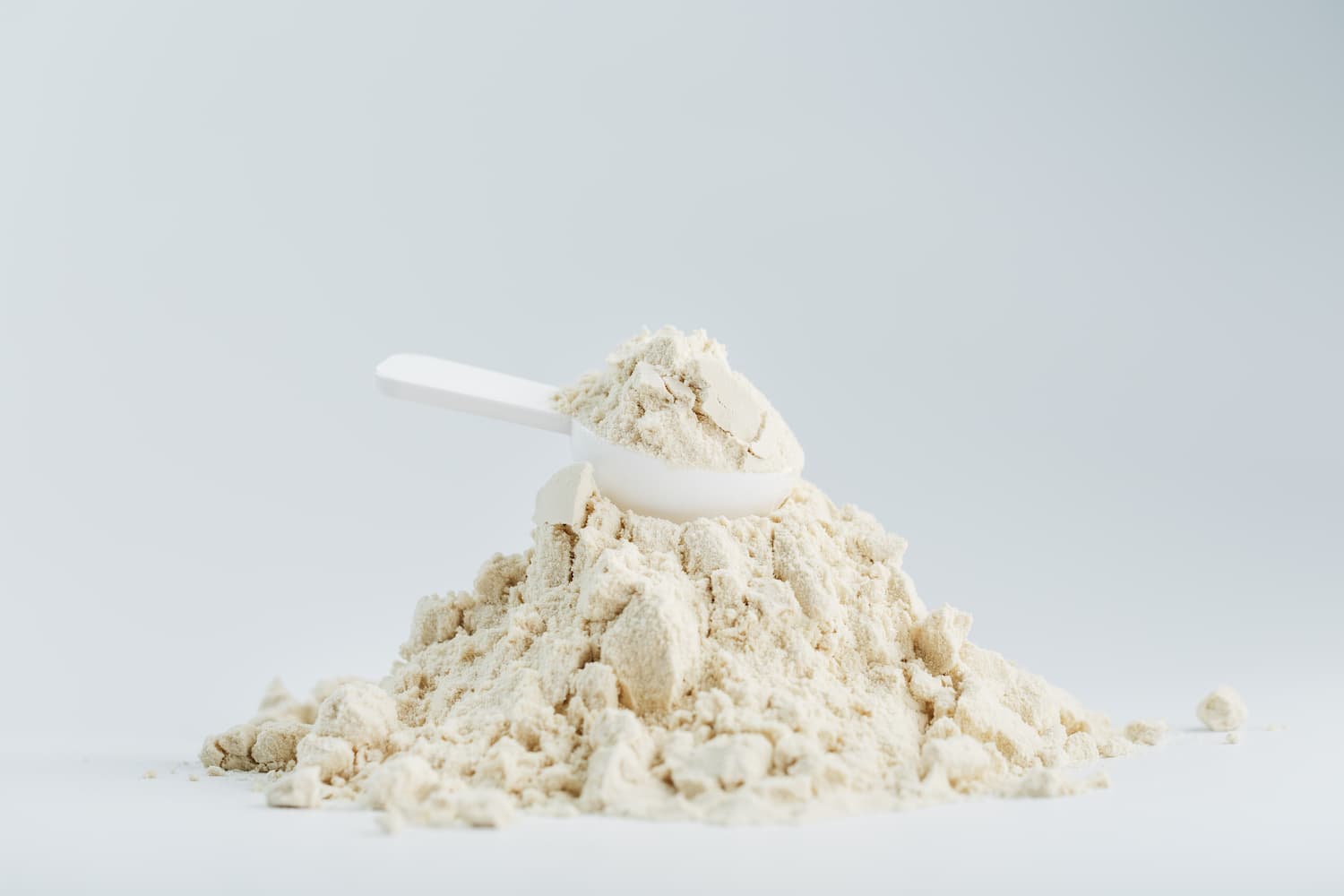
Vegan protein supplements add protein to the diets of athletes and non-athletes alike.

Look after the protein in your diet whether you are on a weight gain, weight reduction or weight maintenance.

Methionine is a little-known amino acid that is responsible for many functions in the body.
